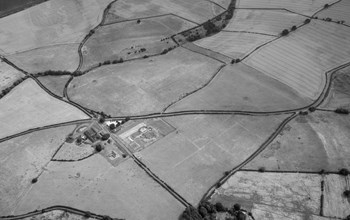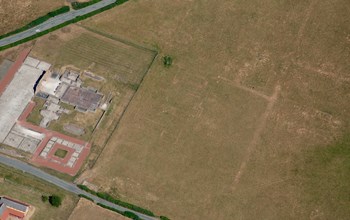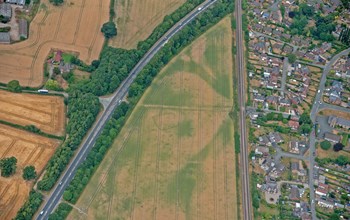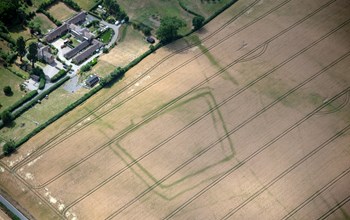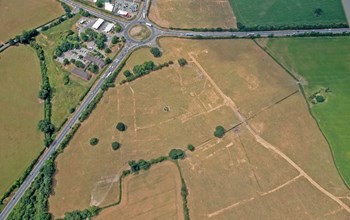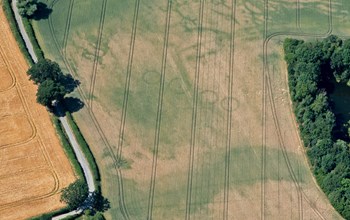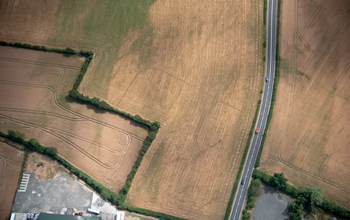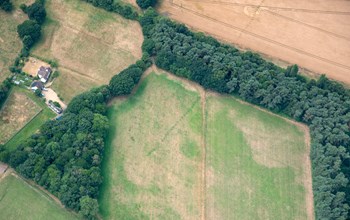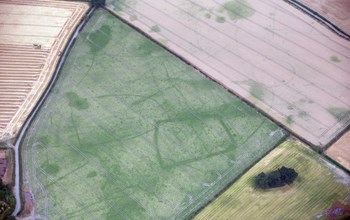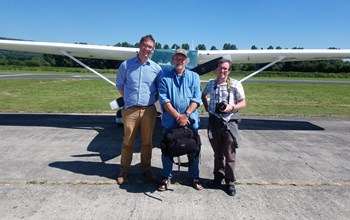Dry summer reveals historic and archaeological sites across Shropshire
The dry summer, as widely reported, has provided a real boon for aerial archaeologists, with a large number of new discoveries across Shropshire and the UK, as well as significant detail being added to previously recorded historic sites.
Grant-funding from Historic England has enabled Shropshire Council’s Historic Environment Team to carry out four wide-ranging reconnaissance flights, to take advantage of the conditions to identify and record archaeology being revealed across Shropshire.
This summer has seen the recording of a wide range of archaeological sites, including Bronze Age burial monuments, Iron Age farms and Roman ‘marching’ camps.
22 sites recorded during aerial survey this year have never been seen before, and significant detail has been recorded at previously known archaeological sites. This adds to aerial photography taken over the last 10 years which has recorded a wide variety of archaeological sites, historic buildings and landscape features.
The imagery has been catalogued and recorded within the Council’s Historic Environment Record, to support the work of the team in ensuring the rich heritage of the county is effectively protected and managed by working constructively with farmers, land owners and developers.
Centuries of ploughing mean that many archaeological sites are no longer visible above ground; aerial photography therefore adds significantly to our understanding of the county’s past (see below).
The drought conditions of early summer 2018 put many crops under stress, with the result that buried archaeological remains rapidly became visible as ‘cropmarks’. These are created when ditches buried below the plough soil cause the overlying crop to grow taller and ripen more slowly.
In addition, ‘parchmarks’ have developed where buried stonework causes stunted grass growth above archaeological features.

Lezley Picton, Shropshire Council Cabinet member for culture and leisure, said:
“I think for a lot of us this summer has been wonderful with the sunny weather; some may say it’s long overdue! While it’s been great to top up our tans and enjoy the weather, the dryness has enabled Shropshire Council’s Historic Environment team to make some remarkable discoveries.
“We now have record of 22 never seen before archaeological sites improving our knowledge of our beautiful county putting us in better stead to preserve, protect and celebrate our history. I’m delighted with the results of the survey and thank the team for their great work.”
Damian Grady, Aerial Reconnaissance Manager at Historic England said:
“This summer’s spell of very hot weather has provided the perfect conditions for aerial archaeologists to ‘see beneath the soil’. The discoveries in Shropshire are exciting and the finds from this aerial survey are already enriching our understanding of the county’s fascinating history.”
For more information about Shropshire Council’s Historic Environment Record, and the wide range of archaeological sites and features it records, please visit the Discovering Shropshire’s History website.
Some highlights of this year’s aerial survey project are indicated below:
